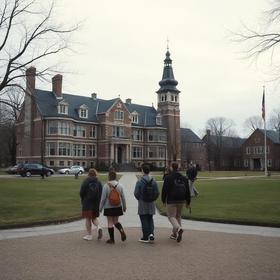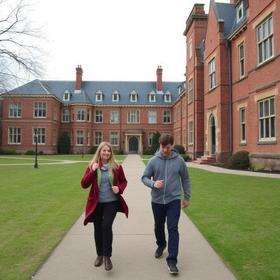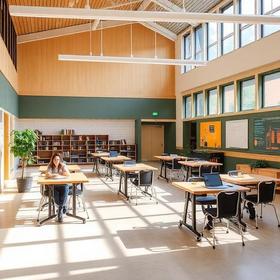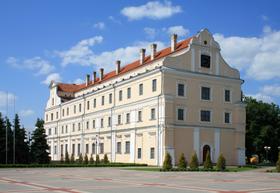Do you have a child who just doesn't fit nicely into a conventional classroom? Are you one of those parents who doesn't see the point of standardized testing? Do you want to let your child explore and discover things for himself in a less structured learning environment? Do you believe that children learn by doing? If you have answered affirmatively to any or all of these questions, then you probably should be looking at progressive schools.
Parents consistently select progressive schools such as Montessori, Waldorf, and Reggio Emilia for the pre-school and primary years. However, when it comes to middle and high school, they tend to feel that they have to follow a more traditional college preparatory model based on Advanced Placement or International Baccalaureate curricula. Why? Most parents seem to think that a test-oriented educational approach ensures their children a better chance of getting into a good college.
Standardized tests are a very common feature of American professional and academic life. It's been that way for the past forty or fifty years. But should children in K-12 schools be subject to standardized testing? You get the feeling that teachers have to teach to the test, as opposed to being able to teach their subjects. Now, most private schools have developed enriched curricula which far exceed the requirements put forth by most of the common high school standardized tests, e.g., SAT and ACT.
Is your child very intelligent? Is she gifted? Does she want to do things at her pace and not everybody else's? Then you probably should give progressive education a closer look. There are only a handful of progressive boarding high schools. We'll put them under the microscope for you.
The Origins of the Progressive Education Movement
The progressive education movement took hold at the end of the 19th and beginning of the 20th century in America. Philosophers and educators, such as Francis Parker and John Dewey, were opposed to the rote learning practiced in most schools at the time. Memorizing facts and regurgitating them was not learning as far as these educators were concerned. They favored a child-centered style of learning. They felt that children should be able to explore and learn as a result of their own explorations. The emphasis would be on creativity. Maria Montessori's instruction to "follow the child" underscores the philosophy of the progressive movement.
Fast forward to the beginning of the 21st century and the No Child Left Behind Act. Public K-12 schools were now being held accountable for achieving certain required educational standards in language arts and mathematics. The only way teachers could hit those numbers was to teach to the test. If they didn't do that, their jobs would be in jeopardy. Ergo, if the material was on the test, it got taught. Obviously, I have simplified the issue. W. James Popham's article Teaching To The Test in the ASCD journal fleshes out the concepts in greater detail.
With that background in mind, I suggest that you take a look at what progressive schools have been doing. These schools have always built their teaching, curricula and culture around the child-centered, experienced-based approach to education. Boarding schools really go to town with that concept because as residential schools they can be progressive 24/7. When you send your child to a progressive boarding school, he will be immersed in the culture continuously. Progressive day schools also offer lots of great programs and teaching integrated into a complete educational package. The key disadvantage is that the immersion process comes to a halt when your child leaves school at the end of the day. At a progressive boarding school, your child just never stops learning and experiencing the world around her. Isn't that the way you want her to learn? It's a pretty exciting concept.
Two Progressive Boarding Schools
Take The Putney School, for example. This small boarding school in Putney, Vermont, was founded in 1935 by progressive educator Carmelita Hinton. The school still operates according to her philosophy or fundamental beliefs as the school calls them. It's all about creating a community in which all members care about and are sensitive to the world around them. Putney's faculty does not teach to the test. They don't have to. Consequently, you won't find the usual report cards and papers full of red marks at this school. Rather, the school assesses its students in other much more positive ways. SAT preparation and AP courses are not part of this school's college preparation. True academic inquiry and a passion for discovery are.
Here is a quick look at The Putney School.
Or The Buxton School in Williamstown, Massachusetts. Set in the midst of a first-rate academic community - Williams College - the school affords its students the opportunity to follow their own inclinations and passions. No AP courses here though you can pursue AP course studies with the faculty if you choose. No standardized testing. Report cards will not be found. Where do graduates of a progressive school matriculate? They go on to some pretty fine colleges and universities. Are they at a disadvantage or somehow isolated from the real world because of their education? Quite the contrary. Graduates of a progressive school have been immersed in the process of building stronger communities, learning how to protect the environment, and, above all, understanding how true learning takes place. Here is a quick overview of The Buxton School.
Will attending a progressive school harm my child's chances of getting accepted at college? Not at all, assuming, of course, that your child has worked to her capacity, participated in all school activities, and been a well-regarded member of the school community. College admissions departments know which high schools of any kind produce graduates who are well-prepared for college-level work. Creating a class of incoming students who hail from a variety of educational and societal backgrounds is an important goal for most public and private colleges in the 21st century. Significantly, admissions officers don't wait for the right mix of applicants to come along. They actively pursue them. Progressive schools are highly thought of as institutions wherein genuine learning experiences can take place.
Questions? Contact us on Facebook. @boardingschoolreview














